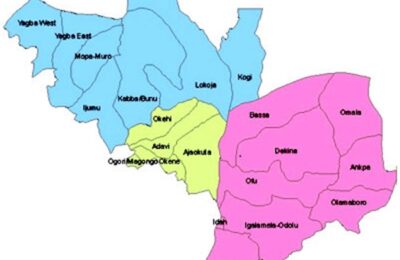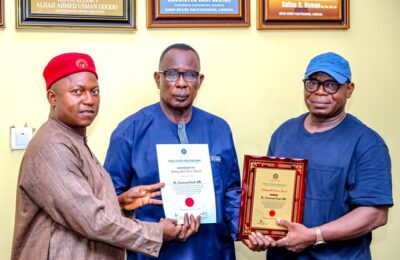One of the topical issues in many strata of the society in Kogi State today is the discourse on bail out, or rather, the politics of the bailout fund.
The bailout fund as originally intended by the presidency was a financial intervention to help states to pay accrued salaries to their workers. While state civil servants in Kogi State do not have much problem with salaries being owed not more than one month, local government staff are, however, in a different frame. Many of them have continued to receive salaries in percentages, a situation that has damaged grassroots economy.
For over a year, Local Government Councils have been unable to pay full salaries to their staff. It is thus not surprising that many council staff find it hard to provide for the basic needs of their families.
The gory situation is best captured by the narration of a council staff who spoke to Vanguard recently.
“As the breadwinner of my family, it is pathetic that I can’t even provide for the needs of my immediate family. I took a loan to send my daughter to the College of Education and I am now paying compound interest due to my inability to repay the loan”, he said.
Financial stability
Where the Councils Missed the Road
In the days of the oil boom with strings of windfalls, Local Government Areas in Kogi became rich.
With lack of proper planning to secure their financial stability and provide for the needs of the populace, the Local Government Councils entered a recruitment spree. The wage bills of the councils were loaded to the detriment of the provision of social amenities to the people.
At inception, the administration of Capt. Idris Wada moved to restore sanity to the system. Verification panels were set up to look into the ugly situation of bloated labour force in the Local Government Councils. The revelations included the fact that many “staff” of the councils were permanently resident in Lagos, Kaduna, Kano and other states across the country.
It was also discovered that many staff in the Local Government Areas were improperly employed. With the councils in debt running into billions over payments made to ghost workers and the dwindling oil revenue leading to shrinking allocations, it became practically impracticable to pay salaries. In order to avoid the total collapse of the economy of homes, the councils resorted to percentage payment.
The Bailout Option
So, following the intervention of President Buhari earlier in the life of the administration, the bailout facility was worked out to allow states access to long term loans to pay the backlog of salaries.
Kogi State became one of the applicants as the state administration announced that the big chunk of the bailout fund will go into settling salary arrears in the local councils since there was no such pressure at the state level.
It is believed that over N45 billion will be needed to address the arrears owed the council “workers”.
The Political Perspective: The euphoria that greeted news of the bailout is fizzling out gradually as the State Government battles to receive the funds.
Despite repeated denials by government, it is believed that the November 21 governorship election is having a negative effect on the release of the bailout.
The opposition party in the state, the All Progressives Congress has been accused of blocking access to the bail out in order to ensure workers are not paid before the election. To this end, analysts contend, the PDP will be at a disadvantage in the election.
However, APC chieftains in the state are of the opinion that the PDP is planning to use the funds for the election. With the ensuing antagonism on the bailout, the civil servants and the citizenry are left in the lurch.




